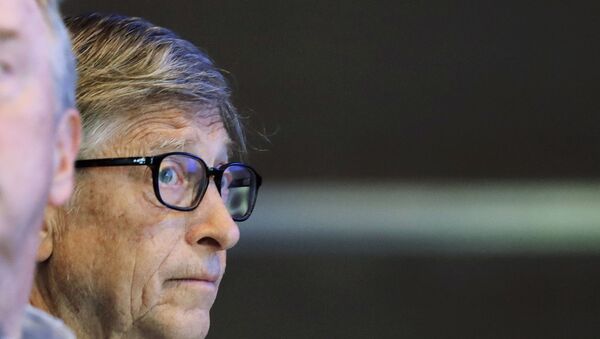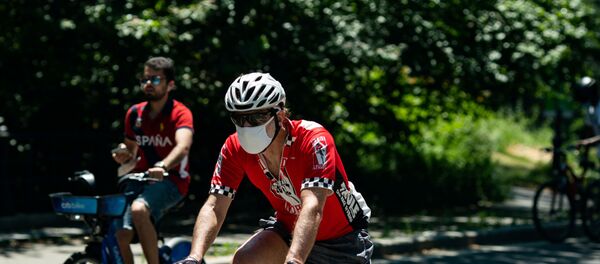Billionaire entrepreneur Bill Gates has called for COVID-19 drugs and an eventual vaccine to be made available to countries and people that need them most, rather than to the "highest bidder”.
He warned that reliance on market forces in this respect would be a bad solution to the raging deadly pandemic, which has already cost the lives of over 550,000 people across the globe.
"If we just let drugs and vaccines go to the highest bidder, instead of to the people and the places where they are most needed, we'll have a longer, more unjust, deadlier pandemic", the Microsoft founder said in a video released on Saturday during a virtual COVID-19 conference set up by the International AIDS Society.
"We need leaders to make these hard decisions about distributing based on equity, not just on market-driven factors”, Gates contended.
The tech entrepreneur-turned-philanthropist said that efforts two decades ago to battle the global HIV/AIDS crisis, when countries joined their efforts to make medicines available in most of the world, including Africa, could serve as a model for boosting the accessibility of upcoming COVID-19 medicines.
To illustrate the point, he brought up the Global Fund to Fight AIDS, Tuberculosis and Malaria, founded in 2002, as well as the US-based President's Emergency Plan For AIDS Relief to get medicines to people to combat some of the world's deadliest diseases as examples. He also recently warned President Trump against withdrawing finances from the WHO, with reports emerging that Gates was ostensibly preparing to fund the WHO on the US' behalf himself.
"One of the best lessons in the fight against HIV/AIDS is the importance of building this large, fair global distribution system to get the drugs out to everyone", Gates, who together with his co-founded charity have been major investors in programmes dedicated to the development of vaccines, tests, and tracking systems in the global anti-COVID fight, said.
With a plethora of vaccine projects currently in the making and governments investing eye-watering sums into research, trials, and production, concerns have mounted that richer nations could scoop up all the promising medicines against the novel virus and leave developing countries out in the cold.
The European Commission and the World Health Organisation warned against unjust competition in the search for a medicine seen as key to saving lives and drawing a line under the virus-induced economic chaos after some officials in Washington made it clear that they would seek to prioritise US residents.
Gates Conspiracy Theories: 'Bizarre' or 'Humorous'?
Meanwhile, Gates, a well-known Democratic donor, has himself been implicated in a number of conspiracy theories alleging that he aims to get microchips inserted into people around the world when they get vaccinated to better track them.
The entrepreneur expressed concern in early June over the widespread theories linking him to some undercover plot to "microchip" the population under the guise of combating the global pandemic.
"In a way it’s so bizarre, you almost want to view it as something humorous", Gates put it, days after it emerged that the trial of the Novavax experimental inoculation was set to cover Australia and beyond, and expand on to different age groups following the Gates charity's financial injection into the venture.
The novel coronavirus was first reported in December 2019 in Wuhan, the sprawling capital of central China’s Hubei province. Over 12.2 million people have been infected globally to date with COVID-19, of whom more than 560,000 have died, according to estimates of Johns Hopkins University.
Quite a few countries have in the past few months embarked on global research and vaccine development projects, with Russia, the US, China, Germany, and the UK among those leading the effort. Russia has now set about the final stage of testing a COVID-19 vaccine being developed by the Gamaleya Scientific Research Institute of Epidemiology and Microbiology jointly with the Russian Defence Ministry. Participants of the experiments, which started in mid-June, showed an immune response to the coronavirus vaccine, which will give people protection against the virus for a period of over two years, the ministry’s statement has it.



